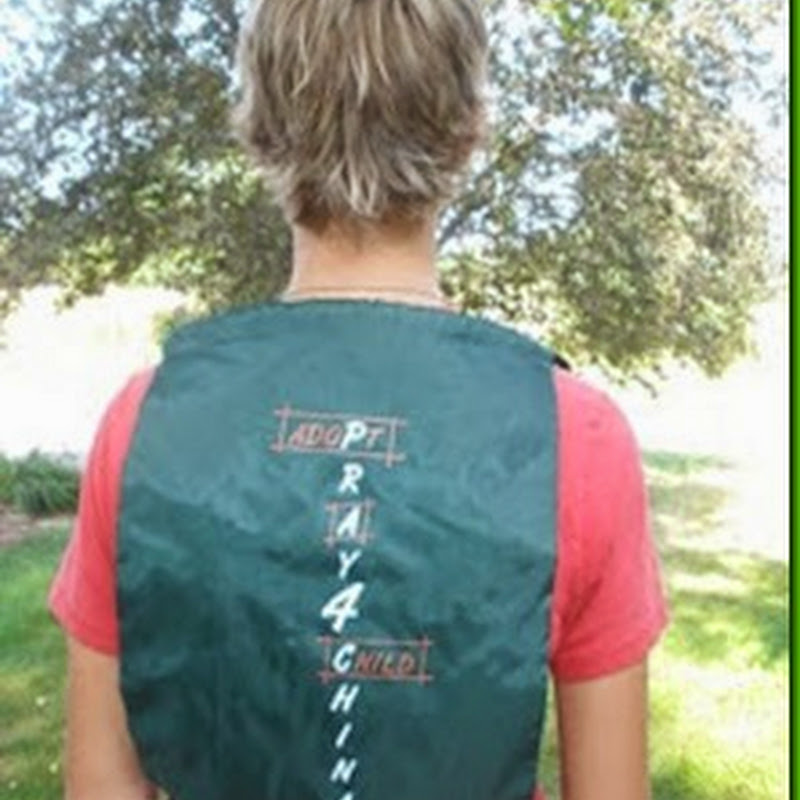Life on the Funny Farm: Adoption & Loss
September 18, 2012
I feel privileged to share another brilliant guest post from Anne Kimball. Anne is a bio/adoptive mother of six (gotta love that) and Top Mommy Blogger who writes Life on the Funny Farm. If you enjoy well written, smart and witty writing make sure you bookmark her site!
I think Anne crystallizes a great point in the adoption "debate" when she writes, "Rejoicing in the new does not mean there is not grieving for the old, for one does not take the place of the other. They coexist."
Enjoy....
Adoption and Loss
Mention the word adoption, and you're sure to invoke a response of some kind.
For many, the word is associated with the warm fuzzies.
After all, by definition, an adopted child has moved from having no
family, to being a part of a family. What could be fuzzier than that?
For others, the word is linked with images of a broken system. One
which perhaps places too much emphasis on the superficial well-being of
the child, and not enough on the blood-ties that bind a birth mother and
child. Or on an adoption industry that encourages mothers to give up
their child for his "best interests".
Another broken system view would say that the rights of the child
are secondary to the goal of reunification, and often the child has
trauma after trauma after trauma placed upon his shoulders in the
system's efforts to keep biological parent and child together.
No matter the angle viewed, an adopted child has experienced loss.
Whether the child's birth parents died, or the child was given up
willingly to "have a better life", or the child was removed from the
home of abusive and/or neglectful parents, the child has lost the
parents that brought her into the world. That's not good, it's not bad,
it's not indifferent. It is LOSS.
That's not to say that the child cannot go on to be successful, to be functional, to be happy in spite of the loss.
Consider as an analogy the person who has lost a limb. Whether by
trauma or by carefully planned surgery, that loss is a loss. With guided
prosthetic training and hard work, the person can regain function, and
move freely again in a world where he once felt limited. We can applaud
that person, rightly so, for making such strides and becoming so
functional. But would we ever think to say how "lucky" he was to have
such a wonderful prosthetic? Certainly not. He lost something that was
an undeniable part of him. No matter how functional and happy and
successful he becomes, he is never thankful that he lost a part of
himself.
He could be thankful, perhaps, that his life was spared. I had a
young man as a patient once, who lost his arm traumatically: he was
driving along with his arm hanging out of the window when a truck
sideswiped him. He could have died in that accident, but "only" lost an
arm.
Or he could be thankful, maybe, to no longer have pain. Another
patient of mine was a middle-aged high school chemistry teacher, and
mother of three. The tumors and the repeated surgeries were a source of
unspeakable pain and stress and dashed hopes. The decision to lose the
arm was a difficult one, but one she felt she had to make. After the
amputation, her pain was finally at an end, and with training her
function was regained, but it didn't mean she didn't grieve.
In the same vein, an adopted child can be thankful to have found a
family who loves him. He can be grateful to have an easier life than he
once had. But those things can never replace what has been lost. They
can help him to be functional again, to feel secure and safe and
supported. But something that was a part of him is gone. Rejoicing in
the new does not mean there is not grieving for the old, for one does
not take the place of the other. They coexist. The loss should never be
discounted or diminished simply because, on the surface, the person
appears to be functional, and maybe even happy.
Clearly, this analogy is an oversimplified one. Regardless of the
pain associated with the trauma or the pathology of the loss, losing a
limb cannot compare to the emotional complexities of losing the parent/s
that brought a child into the world. It does not speak to the confusing
emotions and truths the child must face when there was intent to harm,
criminal neglect, voluntary abandonment, or even just the inability to
win the battle against overpowering demons that prevented the Mom or Dad
from being able to be the parent he or she needed to be.
So. When you think of the word "adoption", try to remember that it
is a two-sided coin, and that it takes both sides to make up the whole.
Remember this dichotomy the next time you speak with an adopted child.
Be glad for him that he has found a family that cherishes him and
supports him. But be aware that before this "new family" came into the
child's life, he first had to face the most devastating loss a person
could face.
And respect that.
Image courtesy: thetandd.com




































































.jpg)







